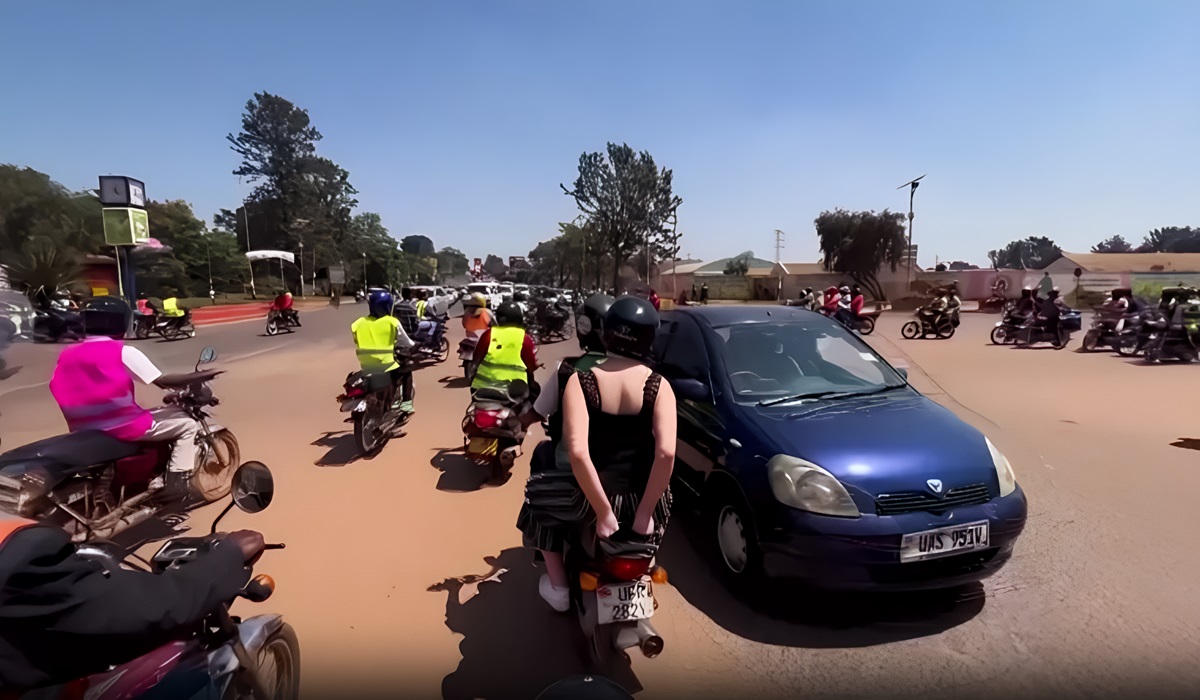Image Credit, Isabel Nakirya, CGTN Kampala
Uganda is quietly leading the charge in Africa’s transition to greener, more sustainable transportation, and nowhere is this more evident than on the streets of Kampala. The iconic boda bodas, which once symbolized chaos and pollution in the bustling city, are gradually becoming a testament to innovation and environmental progress. With electric motorcycle taxis making up an increasing share of the city’s transportation fleet, Uganda is carving a path toward a cleaner and more efficient urban mobility model.
Electric boda bodas, as they are known locally, are transforming the landscape in more ways than one. For riders like Justin Onen, the switch to electric bikes is a practical and economical decision. The cost of charging these bikes is significantly lower than that of fueling their petrol-powered counterparts, making them a more sustainable choice in the long term. Onen, like many others, appreciates the reduced operational costs but notes a critical challenge: the limited number of battery-swapping stations available in the city. While the government and private sector are working to address this gap, the current infrastructure lags behind the growing demand for these electric vehicles.
The benefits of this green transition extend far beyond cost savings for riders. Kampala, one of Africa’s most polluted cities, suffers from air quality levels that exceed World Health Organization guidelines by more than six times. The widespread adoption of electric motorcycles has the potential to significantly reduce emissions, improving the city’s air quality and overall public health. This shift also aligns with Uganda’s broader climate goals, including achieving net-zero carbon emissions by 2050.
Private companies are stepping up to accelerate this transformation. Firms like GOGO Electric are optimistic about the rapid scale-up of electric motorcycles, citing their lower production costs compared to electric cars. However, challenges remain, particularly in sourcing parts for e-bikes. Jonas Bisaso, Chief Operating Officer at GOGO, highlights the reliance on imported components, such as batteries, as a bottleneck in the effort to localize production. Nonetheless, initiatives to streamline the assembly process and integrate local raw materials into the value chain are underway, signaling long-term potential for growth in the sector.
Uganda’s government is playing a pivotal role in fostering this e-mobility revolution. By considering tax incentives for electric vehicle manufacturers, policymakers aim to attract investment and lower the barriers to entry for green technologies. While the transition is still in its early stages—electric boda bodas make up just 10% of the fleet in Kampala—the momentum is undeniable.
This shift isn’t just about cleaner air and lower emissions. It’s also a lifeline for millions of young Ugandans who depend on boda boda driving as a livelihood in the face of high unemployment in the formal sector. The rise of electric motorcycles offers a chance to modernize this informal economy while making it more sustainable.
As Uganda invests in the future of e-mobility, it sets an example for other African nations grappling with similar urban and environmental challenges. The roads of Kampala, once choked with the fumes of petrol engines, now serve as a stage for a new era of transportation. With continued investment in infrastructure, policy support, and technological innovation, Uganda’s electric revolution could pave the way for a cleaner, greener Africa.
Story first broke by Isabel Nakirya, CGTN Kampala









